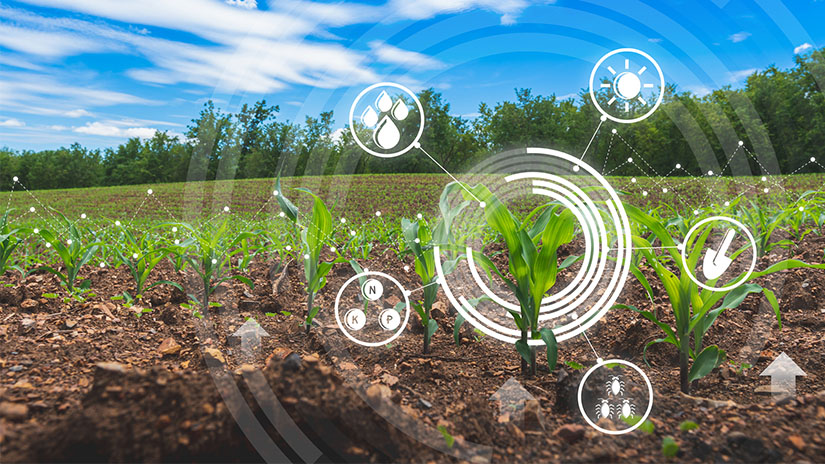In the ever-evolving landscape of agriculture finance, the convenience of online application processes has become increasingly paramount. As we step into 2023, farmers and agricultural entrepreneurs are presented with a plethora of opportunities to secure financial support through digital channels. This comprehensive guide explores the nuanced steps involved in applying for agriculture finance online, shedding light on key aspects such as agricultural insurance companies, agriculture loans, finance options, and interest rates.

Read more.. How to Apply for Home Finance Online in 2023
Read more.. How to Apply for Agriculture Finance Online in 2023
Agriculture is a pivotal force in the worldwide economy, influencing the lives of billions, and whether it involves subsistence farming or expansive agribusiness enterprises, substantial investments are imperative for achieving success. Agricultural finance, often facilitated through loans, provides the capital needed for crucial elements such as equipment, seeds, fertilizers, and operational expenses. This guide aims to navigate the intricacies of obtaining agricultural financing, catering to both small-scale farmers and large agri-entrepreneurs.

Read more.. How to Apply Agriculture Loan and Insurance
Read more.. How to Apply for Bike Finance Online in 2023
Grasping Agriculture Finance Embarking on the journey to secure agriculture finance requires a solid understanding of its definition and significance. Agriculture finance encompasses diverse financial services tailored to the unique requirements of farmers and agribusinesses. These services include agriculture loans, crop insurance, equipment leasing, and more, with the primary goal of providing capital to bolster the growth and sustainability of the agricultural sector.
Importance of Agriculture Finance:
-
- Capital Access: Agriculture finance ensures that farmers and agribusinesses have the necessary funds for investments, enabling the purchase of seeds, fertilizers, machinery, and covering other expenses to enhance productivity.
- Risk Management: Insurance products in agriculture finance play a crucial role in shielding farmers from unexpected events like crop failure or natural disasters, mitigating potential financial losses.
- Economic Growth: A flourishing agricultural sector substantially contributes to economic advancement through job creation, income generation, and increased food production.
- Food Security: Agriculture finance is pivotal in upholding food security, empowering farmers to enhance yields and meet the needs of the expanding global population.
- Sustainable Practices: It fosters the adoption of sustainable and eco-conscious farming techniques by facilitating resources for innovation and progress.

Steps to Apply for Agriculture Finance
How to Apply for Agriculture Finance Online in 2023
1. Assess Your Financing Needs:
Project Scope: Define the scope of your agricultural project, including its size, the type of crops or livestock, and the required equipment.
Budget and Expenditures: Develop a comprehensive budget that itemizes expenses like land purchase, equipment, seeds, labor, and operational costs.
Working Capital: Evaluate your day-to-day financial requirements, including labor and maintenance expenses.
Contingency Preparation: Allocate resources for unexpected occurrences like pest issues or adverse weather conditions that may impact your crop yields.
2. Identify Suitable Lenders:
Commercial Banks: Traditional banks often offer agricultural loans and financing packages.
Agricultural Development Banks: Many countries have dedicated agricultural development banks focusing exclusively on supporting the agricultural sector.
Microfinance Institutions: These institutions provide microloans to smallholder farmers and often have more flexible terms and requirements.
Cooperative Credit Societies: In some regions, cooperative credit societies provide agriculture finance to members.
Online Lenders: With the growth of digital finance, various online platforms and fintech companies offer agriculture loans.
Government Programs: Some governments provide subsidies or low-interest loans to support agriculture.
Research and compare the offerings of these potential lenders, considering agriculture loan interest rates, terms, and eligibility criteria to find the best fit for your financing needs.
3. Prepare Required Documents:
-
- Proof of Identity: National ID, passport, or any government-issued identification.
- Ownership Documents: For land purchase or development loans, documents proving land ownership or lease agreements.
- Business Plan: A comprehensive business plan detailing your project’s scope, expected returns, and repayment plan for commercial agricultural projects.
- Financial Statements: Income statements and balance sheets may be required.
- Credit History: Occasionally, lenders may request your credit history to evaluate your creditworthiness.
- Collateral Documents: Details about the collateral you’re putting up for secured loans.
Ensure you have all necessary documentation prepared and organized, streamlining the application process.
4. Choose the Right Type of Agriculture Loan:
Agriculture finance offers various types of loans tailored to different needs, such as crop loans, livestock loans, machinery and equipment loans, land purchase loans, and working capital loans.
5. Application Submission:
With your financial requirements assessed, a lender chosen, and your documentation prepared, submit your application accurately and thoroughly through the lender’s physical branch, their website, or an online application platform.
-
-
- Complete All Sections: Fill out all sections of the application accurately and thoroughly.
- Proofread and Edit: Take the time to proofread your application for errors in spelling, grammar, or formatting.
- Meet Deadlines: Adhere to application deadlines, as late submissions are typically not accepted.
- Additional Materials: If needed, submit additional materials aligned with the application’s requirements.
- Recommendation Letters: If required, contact references well in advance and ensure they submit letters before the deadline.
- Payment: Pay application fees, if required, using the specified method and keep a record of the transaction.
- Confirmation: Keep the confirmation or receipt for your records as proof of submission.
- Follow-Up: If no confirmation is received within a reasonable time, follow up with the organization to ensure they received your application.
- Respect Privacy: Be mindful of privacy and data security when submitting personal information.
- Track Progress: Keep records of submitted applications, deadlines, outcomes, and feedback for future reference.
- Stay Positive: Maintain a constructive mindset throughout the application process, embracing rejections as valuable opportunities for personal development and enhancement.
-
Frequently Asked Questions (FAQ)
What is agriculture finance?
Agriculture finance comprises financial services tailored to the unique needs of farmers and agribusinesses, including loans, crop insurance, and equipment leasing, to bolster the growth and sustainability of the agricultural sector.
Why is agriculture finance important?
Agriculture finance is instrumental in granting essential capital access to farmers and agribusinesses, enabling them to invest in seeds, fertilizers, machinery, and meet operational costs, while also contributing to risk management, economic growth, food security, and the advocacy of sustainable farming practices.
How can I assess my financing needs for agriculture?
Assess your financing needs by defining the scope of your project, developing a comprehensive budget, evaluating working capital requirements, and preparing for contingencies such as unexpected expenses or adverse weather conditions.
Where can I find suitable lenders for agriculture finance?
Potential lenders include commercial banks, agricultural development banks, microfinance institutions, cooperative credit societies, online lenders, and government programs. Research and compare their offerings to find the best fit for your needs.
What documents are required for agriculture finance application?
Common documents include proof of identity, ownership documents, a business plan, financial statements, credit history, and collateral documents. Ensure all necessary documentation is prepared and organized.
Conclusion
Effectively navigating the application process for agriculture finance requires a systematic approach, encompassing various steps, from evaluating financial requirements to selecting an appropriate lender and presenting a thorough application. Agriculture finance stands as a crucial element in fostering the expansion and durability of the agricultural sector, playing a vital role in economic progress, ensuring food security, and promoting the adoption of sustainable farming methods. By adhering to the structured steps detailed below and maintaining organizational diligence, farmers and agribusinesses can increase their likelihood of obtaining essential capital for their initiatives, thereby playing a key role in the enduring success of the agricultural industry.






